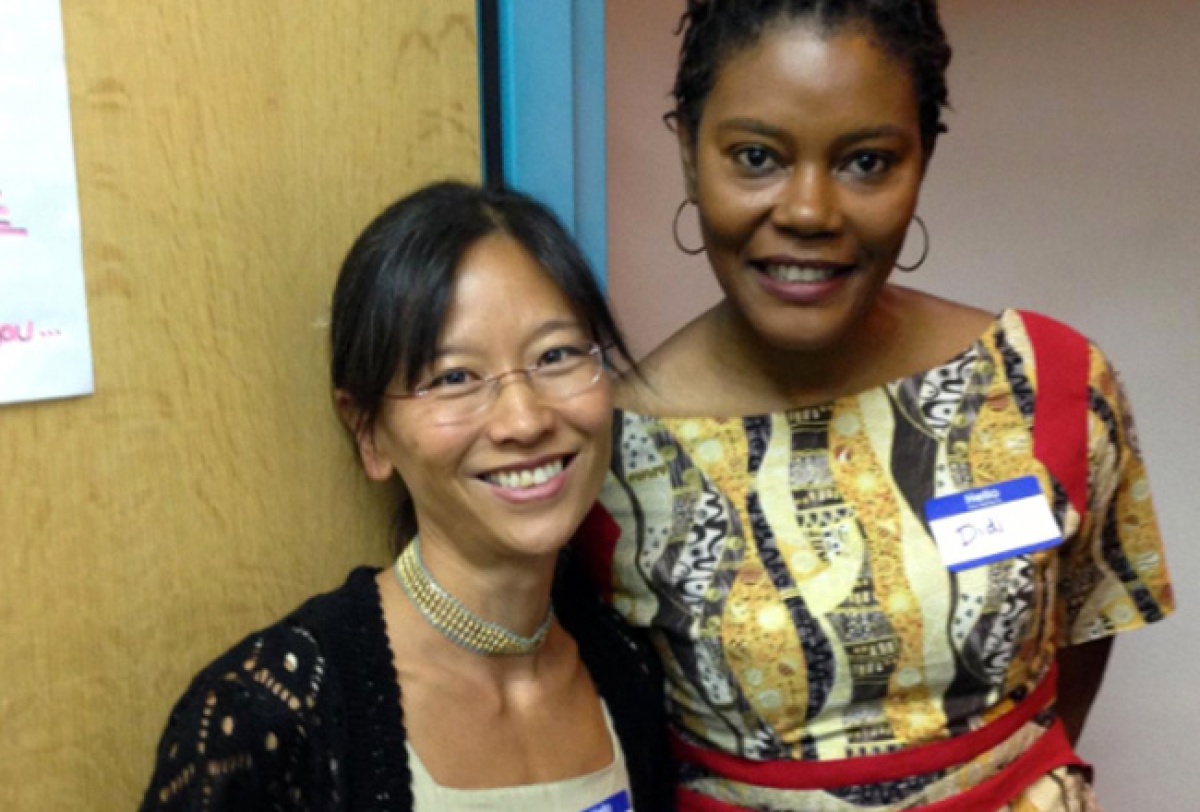COPE Brings Cross-Pollination to Navajo Nation
Posted on Jun 11, 2013

This article originally appeared in the BWH Bulletin.
On one of her first visits to Navajo Nation as a resident in the Division of Global Health Equity, Sara Selig, MD, went to the home of a man in his late 20s with uncontrolled diabetes. A young father, one of his legs had already been amputated due to the disease, and Selig was concerned he was developing even more complications.
The Community Outreach & Patient Empowerment Program, or COPE for short, was started five years ago to help high-risk people with diabetes living in two areas of Navajo Nation, which is the largest tribe in the U.S. Today, COPE has expanded to cover the entire Navajo Nation and works across the spectrum of chronic diseases.
COPE partners with the Navajo Nation to improve the health of high-risk patients through interventions such as providing educational materials, including flip charts, to use with patients and training community health workers to help patients set and achieve goals.
COPE held a first-of-its-kind symposium this spring in Window Rock, Ariz., the capital of Navajo Nation. The event drew approximately 150 participants, from clinic-based physicians and nurses to community health workers and even drivers, who often act as translators for health workers making home visits. The faculty consisted of both local and international experts, many of whom were affiliated with COPE's partner organizations of BWH, the Indian Health Service, Partners In Health and Harvard University.
"We wanted to highlight what is going on in and around Navajo Nation, as well as bring in the global perspective," said Selig, now a faculty member in the Division of Global Health Equity and associate director of COPE. "By connecting attendees to the larger national and international scene, we cross-pollinate with outside experts and let them know that the problems on Navajo Nation are also faced in other parts of the world."
Most of COPE's funding comes from the non-profit Rx Foundation, and the symposium highlighted the urgent need for more interventions and investments.
"We are so fortunate to have people willing to donate their time and expertise, and this work would not happen without them," said Selig. "But many of these initiatives will also require funding to get off the ground, and we don't know where that's going to come from."
With roughly 20 percent of people in Navajo Nation living with diabetes, one of the highest rates anywhere in the world, COPE's work is greatly needed. Howard Hiatt, MD, associate chief of the Division of Global Health Equity, was inspired to co-found COPE after visiting Navajo Nation in 2009.
"There's surely no group of people to whom we, as Americans, owe more than to Native Americans," he said. "And that debt can't be paid, but at least addressed, by a program like COPE."

